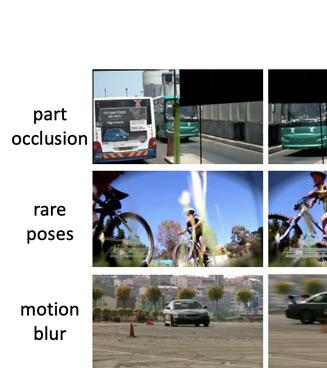Search Results for author: Changyun Wen
Found 11 papers, 0 papers with code
Distributed Matrix Pencil Formulations for Prescribed-Time Leader-Following Consensus of MASs with Unknown Sensor Sensitivity
no code implementations • 25 Apr 2024 • Hefu Ye, Changyun Wen, Yongduan Song
In this paper, we address the problem of prescribed-time leader-following consensus of heterogeneous multi-agent systems (MASs) in the presence of unknown sensor sensitivity.
Composite learning backstepping control with guaranteed exponential stability and robustness
no code implementations • 19 Jan 2024 • Tian Shi, Changyun Wen, Yongping Pan
This paper proposes a composite learning backstepping control (CLBC) strategy based on modular backstepping and high-order tuners to compensate for the transient process of parameter estimation and achieve closed-loop exponential stability without the nonlinear damping terms and the PE condition.
Data-Driven Modeling with Experimental Augmentation for the Modulation Strategy of the Dual-Active-Bridge Converter
no code implementations • 30 Jul 2023 • Xinze Li, Josep Pou, Jiaxin Dong, Fanfan Lin, Changyun Wen, Suvajit Mukherjee, Xin Zhang
The D2EA approach is instantiated for the efficiency optimization of a hybrid modulation for neutral-point-clamped dual-active-bridge (NPC-DAB) converter.
Quantized control of non-Lipschitz nonlinear systems: a novel control framework with prescribed transient performance and lower design complexity
no code implementations • 28 Nov 2022 • Zongcheng Liu, Jiangshuai Huang, Changyun Wen, Jing Zhou, Xiucai Huang
A novel control design framework is proposed for a class of non-Lipschitz nonlinear systems with quantized states, meanwhile prescribed transient performance and lower control design complexity could be guaranteed.
Novel Intensity Mapping Functions: Weighted Histogram Averaging
no code implementations • 14 Nov 2021 • Yilun Xu, Zhengguo Li, Weihai Chen, Changyun Wen
It is challenging to align the brightness distribution of the images with different exposures due to possible color distortion and loss of details in the brightest and darkest regions of input images.
Deep Joint Demosaicing and High Dynamic Range Imaging within a Single Shot
no code implementations • 14 Nov 2021 • Yilun Xu, Ziyang Liu, Xingming Wu, Weihai Chen, Changyun Wen, Zhengguo Li
For the former challenge, a spatially varying convolution (SVC) is designed to process the Bayer images carried with varying exposures.
Detecting False Data Injection Attacks in Smart Grids with Modeling Errors: A Deep Transfer Learning Based Approach
no code implementations • 9 Apr 2021 • Bowen Xu, Fanghong Guo, Changyun Wen, Ruilong Deng, Wen-An Zhang
In this paper, an illustrative case has revealed that modeling errors in transmission lines significantly weaken the detection effectiveness of conventional FDIA approaches.
Online Active Proposal Set Generation for Weakly Supervised Object Detection
no code implementations • 20 Jan 2021 • Ruibing Jin, Guosheng Lin, Changyun Wen
Online proposal sampling is an intuitive solution to these issues.
Feature Flow: In-network Feature Flow Estimation for Video Object Detection
no code implementations • 21 Sep 2020 • Ruibing Jin, Guosheng Lin, Changyun Wen, Jianliang Wang, Fayao Liu
Optical flow, which expresses pixel displacement, is widely used in many computer vision tasks to provide pixel-level motion information.
Resilient Multi-Dimensional Consensus in Adversarial Environment
no code implementations • 3 Jan 2020 • Jiaqi Yan, Xiuxian Li, Yilin Mo, Changyun Wen
To this end, this paper first considers a general class of consensus algorithms, where each benign agent computes an "auxiliary point" based on the received values and moves its state toward this point.
High Speed Tracking With A Fourier Domain Kernelized Correlation Filter
no code implementations • 8 Nov 2018 • Mingyang Guan, Zhengguo Li, Renjie He, Changyun Wen
This is achieved due to the attribute of Convolution Theorem that the correlation in spatial domain corresponds to an element-wise product in the Fourier domain, resulting in that the l1-norm optimization problem could be decomposed into multiple sub-optimization spaces in the Fourier domain.



